Windows 12 isn't Microsoft's only missing operating system
Whatever happened to Windows 9?
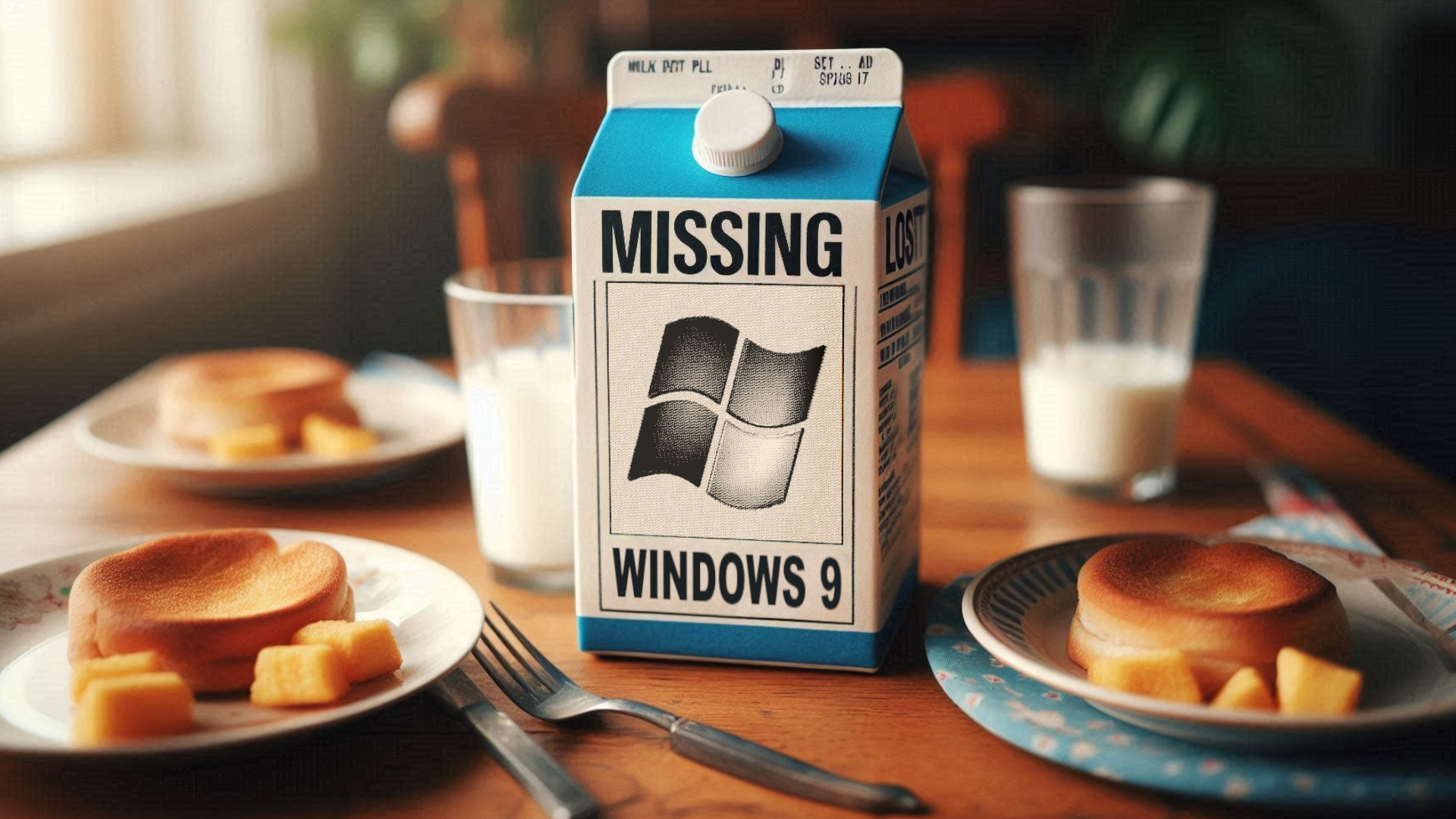
Earlier this week, I donned my best tan raincoat, quit shaving, took up drinking, and began profusely monologuing to myself in a gravelly, world-weary tone to transform into a pulp fiction gumshoe of old to ask, "Where is Windows 12?"
However, in the process of tracking down that answer, I realized that the tech world has a much bigger mystery to uncover.
It's a puzzle that has spawned many theories but never a clear conclusion. The question arises from time to time online, with nobody ever entirely capable of providing a satisfying answer.
Never mind Windows 12; where is Windows 9?
Whatever happened to Windows 9?
Take a cursory glance at a list of Windows operating systems and you're unlikely to see much out of line. On further inspection, something is glaringly out of place, or more specifically, just a glaring space.
It's the gap between Windows 8 and Windows 10, a void with little explanation, sure to leave you clawing at your scalp in bemusement.
Whatever happened to Windows 9? That's a question I've been asking myself as I slip into the role of internet detective this past week. So, taking the LARP to the extreme, I got blind drunk and took to the streets on a dark and dreary night to probe passersby for leads.
Sign up to receive The Snapshot, a free special dispatch from Laptop Mag, in your inbox.
Swinging my legs up onto the desk, careful not to set off my newly acquired ankle monitor, I dove fingertips first into the murky underworld of the internet to procure some answers about the disappearance of Microsoft's no-show nonagon OS.
Just a tip: Don't do this. It's apparently not investigative journalism but antisocial behavior. Strangers don't take all that kindly to being approached by disheveled men emerging from dark alleyways who slur their words over something about looking into Windows.
Thankfully, my backup plan was a little less obnoxious for the general public to endure and much more fruitful. I hung up the raincoat and put away the hard liquor, but I maintained the monologuing because sometimes it's just nice to have someone to talk to — even if it is yourself.
Swinging my legs up onto the desk, careful not to set off my newly acquired ankle monitor, I dove fingertips first into the murky underworld of the internet to procure some answers about the disappearance of Microsoft's no-show nonagon OS.
Theory: Microsoft didn't trust third-party developers
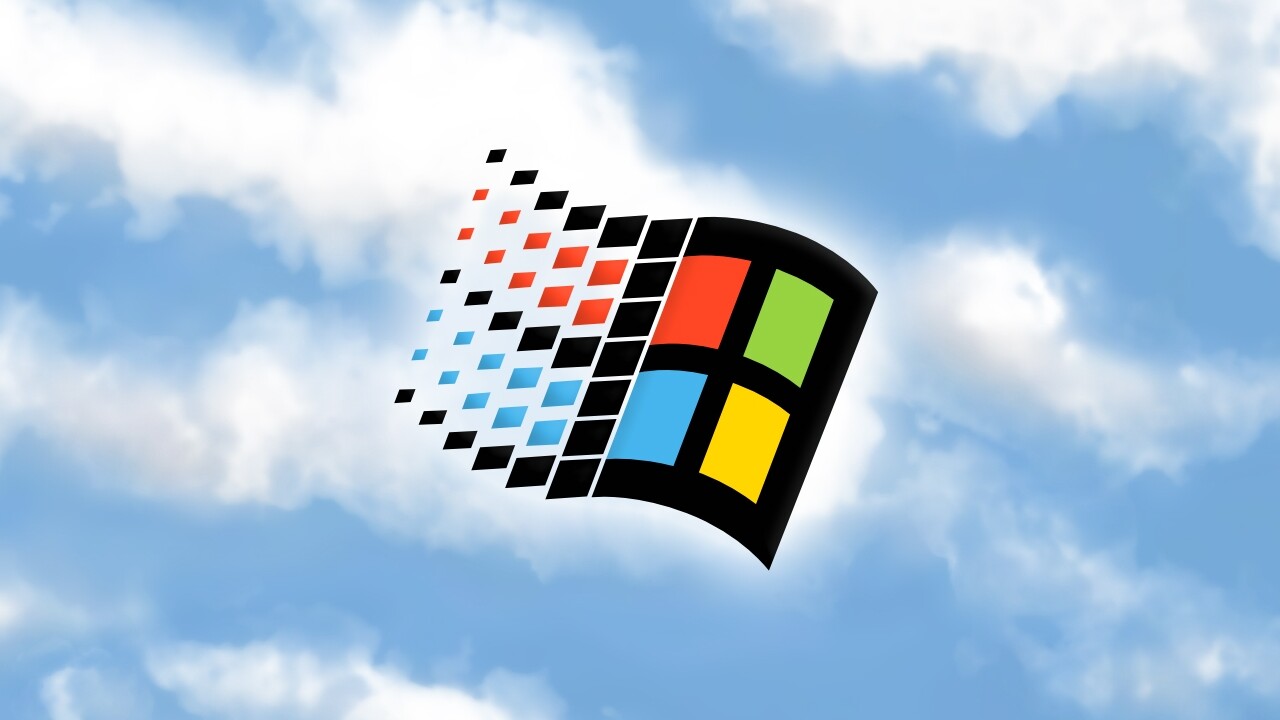
The prevailing thought online for why Windows 9 pulled a vanishing act concerns the archaic coding of Windows 95-era apps. If you've ever wondered about the absence of this OS from Microsoft's lineup, you're likely to have encountered this explanation yourself.
As the story goes, a Microsoft developer took to Reddit one day to casually spill the beans on one of tech's biggest mysteries by posting the following code snippet that supposedly explains everything:
if(version.StartsWith(("Windows 9"))
{ /* 95 and 98 */
} else {To the uninitiated (read: those who are not massive nerds), this looks like the result of whatever that dog in the "weird" ending of Silent Hill 2 was typing into that big computer.
However, the rough translation of the code goes like this: "If the version of Windows on this machine starts with 'Windows 9', presume it means Windows 95 or Windows 98 and carry on. If not, do something else." That "something else" could be throwing an error or letting the user know their operating system isn't supported.
If Microsoft honestly had that kind of foresight for idiocy or incompetence, then they'd have never released Windows Vista.
Microsoft was rumored to be terribly afraid that this is how third-party developers had coded their apps, even though there's no tangible evidence to indicate they did. That didn't stop Microsoft from thinking so lowly of them, though, and avoided the name Windows 9 entirely as the most "pragmatic solution" to preventing this potential issue from occurring.
Of course, the glaring issue with this explanation is that version numbers are numbers, not typically the marketed name of the operating system. Windows 95's version number was actually 4.0, and Windows 98 was 4.10 — which throws the entire theory into the wood chipper.
That incongruence aside, this would mean Microsoft was worried about Windows users in 2015 being unable to run software designed for an operating system whose support cycle expired in 2002. Nonsense.
Perhaps even more damning is the fact that if Microsoft honestly had that kind of foresight for idiocy or incompetence, then they'd have never released Windows Vista.
Theory: Tech companies are scared of the number '9'
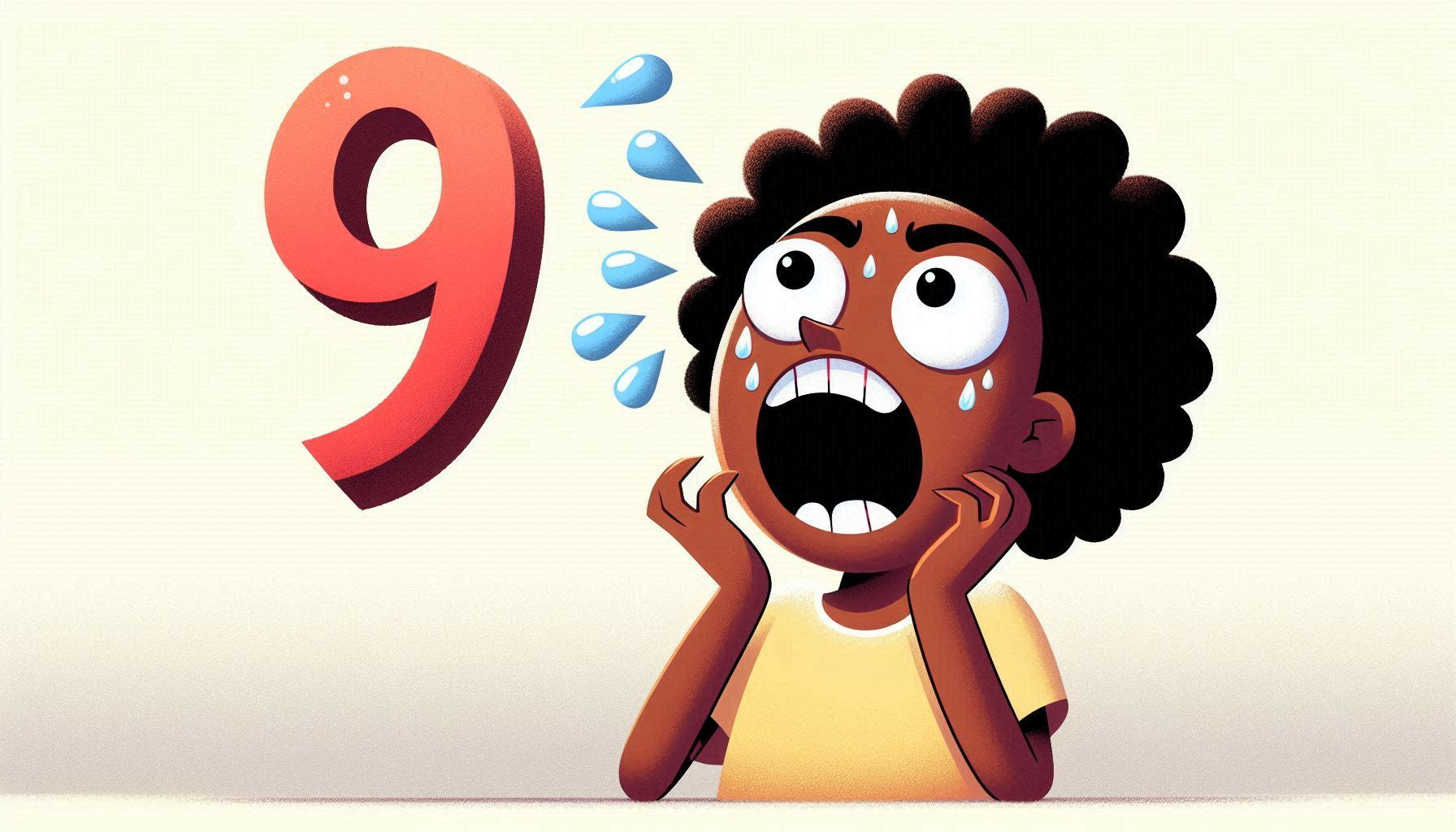
They're worth billions if not trillions, they have governments in their figurative back pockets (Editor's note: allegedly), and they're becoming so big that the concept of a technocracy is less of a hard sci-fi setting and more a reading of the writing on the wall. Still, there's something Big Tech fears, one unshakable phobia: The number nine.
Sure, blaming the absence of Windows 9 on a case of corporate enneaphobia (the fear of the number nine, not to be confused with Enyaphobia — the corporate fear of new-age Celtic pop music) is a bit of a stretch, but Microsoft wouldn't be the only brand to have done so.
Not to be confused with Enyaphobia — the corporate fear of new-age Celtic pop music.
In 2017, Apple released the iPhone X, the X being the Roman numeral for 10. Not exactly damning evidence until you add the context — the previous iPhone to launch was the iPhone 8.
Having begun to pat myself on the back for a job well done far too soon, I quickly realized that a pair does not make a pattern. While I could forcefully convince myself that Google pulled off a similar move with Android P (where the P stands for Pie and is a backward 9), I couldn't find any way to explain just about every other company's willful use of the number.
The Samsung Galaxy S9, Intel i9, iPad 9, and AMD's Ryzen 9 all blew this theory apart like a straw house built by pigs. Thankfully, there were plenty of theories out there to explore, so I moved on to the next.
Theory: Getting even with Apple
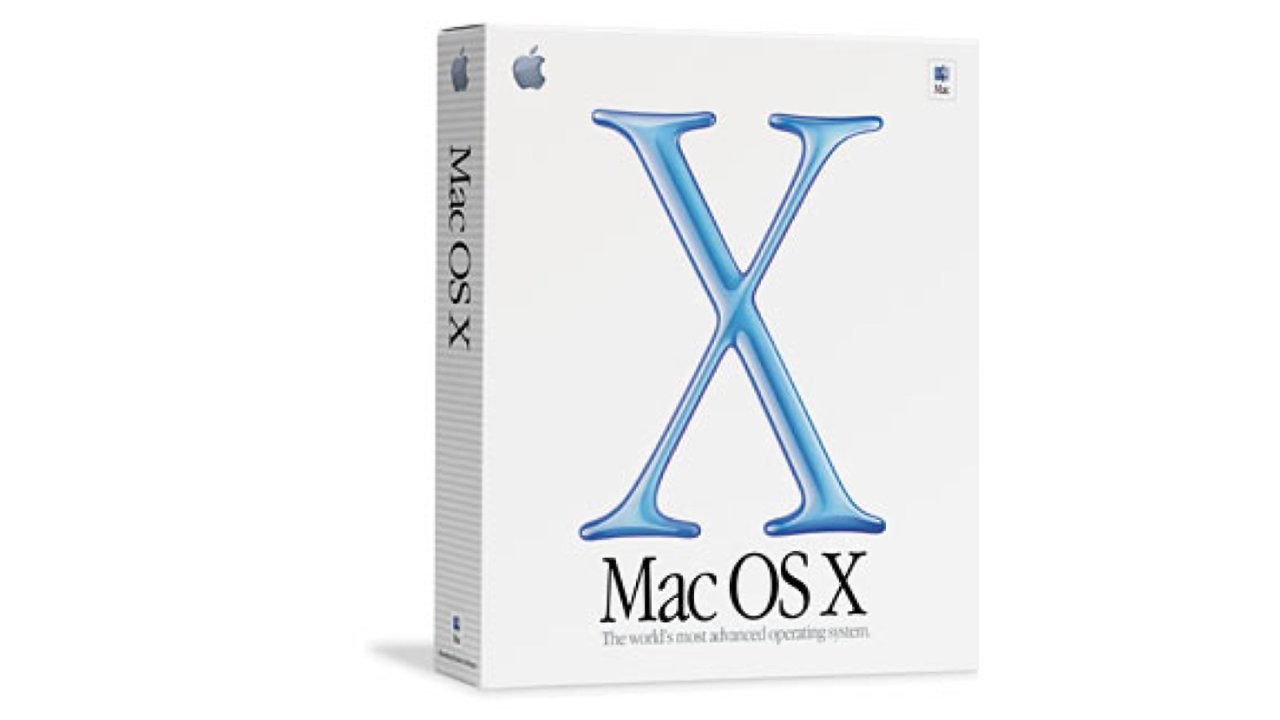
The only problem with having a numbered product is that if your main competitors offer a similar product with a higher number, some people are likely to think it's better. When you're the Windows platform in 2015, the closest you have to direct competition is Apple's Mac OS X 10. So, why not draw a parallel and make the next version of your operating system 10, also? Genius.
It's not like Microsoft hasn't tried to pull off a similar tactic before, either. Just look at the seventh generation of home video game consoles if you don't believe me. Sony was preparing to deliver a follow-up to the incredibly popular PlayStation 2, while Microsoft was set to release its second-generation Xbox — which would likely be dubbed the Xbox 2.
Would Microsoft have jumped to Windows 10 just to meet Mac OS X on even ground? I wouldn't put it past them.
This put Microsoft at a disadvantage because, unless the radio signals from this ankle monitor are playing havoc with my intraparietal sulcus, I'm pretty sure that the number 3 is one better than the number 2. "Don't worry," said Microsoft. "We'll just call it the Xbox 3."
Thankfully, Microsoft realized how weird and petty that would look, instead opting for the name Xbox 360. I'm assuming that moments later, an entire team of marketers sat back in their chairs, looking rather pleased with themselves. "That makes us 357 times better... Now, which shade of brown should we smear all over every game we develop this generation, boys?"
But would Microsoft have jumped to Windows 10 just to meet Mac OS X on even ground? I wouldn't put it past them. Interestingly enough, Apple may have thought similarly.
When Microsoft prepared to make the jump to Windows 11, the newly re-branded macOS would suddenly shift gears and begin making annual milestone version releases like macOS 11 Big Sur right through to the upcoming (and as-of-yet unnamed) macOS 15.
But if it were true, we'd already be basking in the potential glory of a Windows 12 by now — if not a 13, 14, or 15. Either that or Microsoft would simply refuse to keep playing the same old game, much like it did with Sony. Ditching numerical order altogether and simply pulling words and letters out of thin air at random.
Theory: Windows 8 was just THAT bad
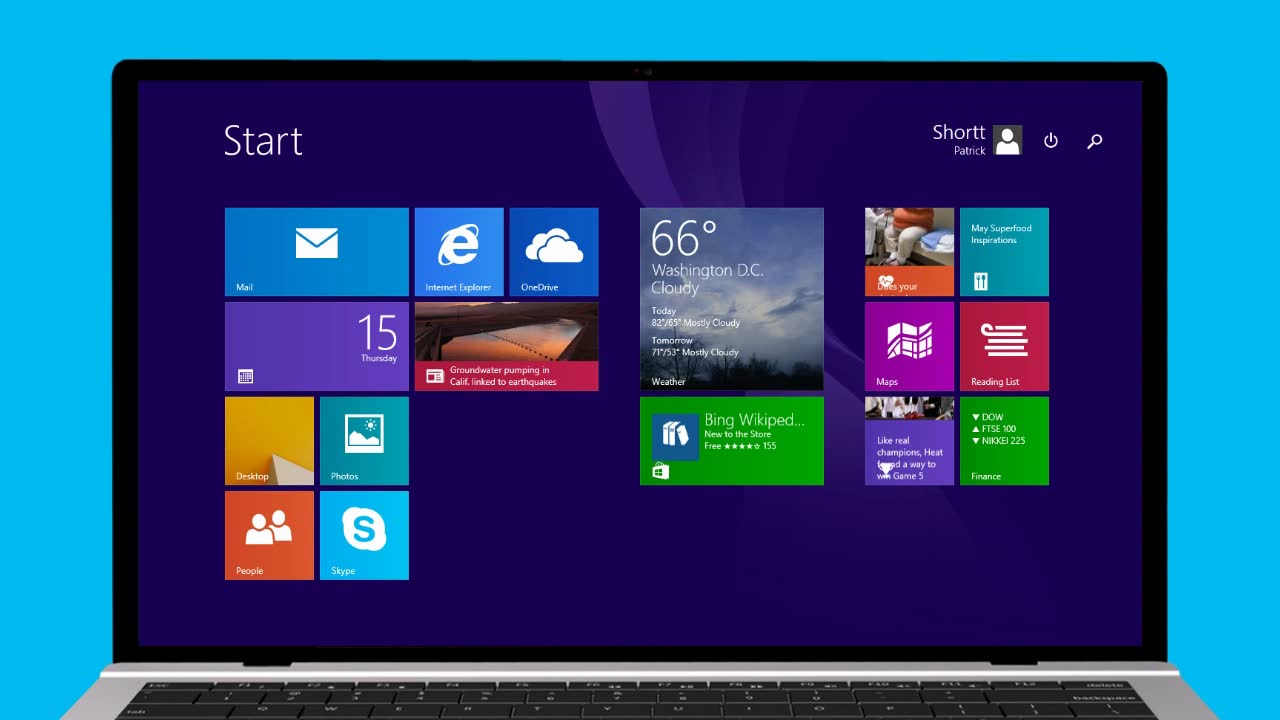
"Nuclear heat" can relate to the aura of genuine dislike emitted by a performer or the blazing wall of radioactive warmth emanating from an atomic blast. Either way, it's not something you want to have around you, and 2012's Windows 8 was packing enough of it to fend off an ice age.
The nuclear level of heat radiating from Windows 8 was so strong that Microsoft didn't even feel safe placing its new platform next to it in terms of numerical value.
They say first impressions count, so when users were greeted by Windows 8's new, overly ambitious, poorly implemented tile interface, Microsoft's mobile-friendly, hybrid OS was instantly doomed. In fact, one of the major selling points of buying a new computer outfitted with Windows 8 Pro was that you could use that license to downgrade back to Windows 7 freely.
Windows 8 was received so poorly that Microsoft was forced to completely overhaul the platform with the Windows 8.1 update — after suddenly realizing what a terrible decision it was to design its operating system for tablets by default, failing to comprehend that the majority of desktop users weren't making use of touchscreens.
One of the major selling points of buying a new computer outfitted with Windows 8 Pro was that you could use that license to downgrade back to Windows 7 freely.
When it came to a follow-up, Microsoft wanted to distance itself so far from Windows 8 that on announcing its next operating system it spoke as if it was a total reboot, referring to it as a whole new chapter of the Windows platform. The nuclear level of heat radiating from Windows 8 was so strong that Microsoft didn't even feel safe placing its new platform next to it in terms of numerical value.
Windows 10 was set to be "The last version of Windows," an operating system as a service, and a version of Windows so much better than Windows 8 that it simply didn't make sense to call it Windows 9.
As, then-Microsoft VP of Windows Marketing, Tony Prophet tried to suggest, Windows 9 "Came and went" in development, further distancing Windows 10 from any direct connection to its predecessor.
But is it true? This time, I believe it is.
Windows 9: Case closed
Sure, four is an odd number to end it on but trust me, the theory of "Because 7 ate 9" was incredibly hard to expand upon without things getting a little avant-garde.
There are many more theories online about why Microsoft skipped past Windows 9—from the completely waterproof "Version numbers, schmersion numbers" to the conspiracy-laden concept that Bill Gates only likes his 9s upside down and presented in threes. There's no citation for that one, I just made it up. (I'm not saying he's evil, maybe he's just a metalhead.)
However, given all the evidence, I honestly believe that my conclusion is the right one. It wasn't poor coding, version number envy, or an irrational fear of numbers. What happened to Windows 9? Windows 8 happened.
Animosity towards Microsoft's hybrid OS was so overwhelming that it was forced to use marketing and psychological tactics to convince you that with Windows 10, the apple most certainly fell far from the tree. Case closed.
More from Laptop Mag
- Where is Windows 12 and can we expect it in 2024?
- Windows 12 rumors: release date, design, and features
- Windows 11 24H2 rumors: Release date, Sudo support, phone link, and more

Rael Hornby, potentially influenced by far too many LucasArts titles at an early age, once thought he’d grow up to be a mighty pirate. However, after several interventions with close friends and family members, you’re now much more likely to see his name attached to the bylines of tech articles. While not maintaining a double life as an aspiring writer by day and indie game dev by night, you’ll find him sat in a corner somewhere muttering to himself about microtransactions or hunting down promising indie games on Twitter.
